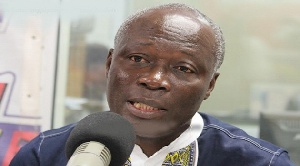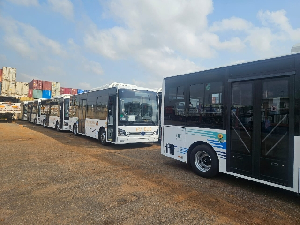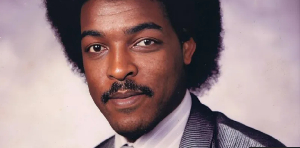Hafiz Choggu It seems controversies surrounding Ghana’s prestigious music awards will not end any time soon.
Hafiz Choggu, CEO of Tarch House production, a music production house interested in promoting Northern music, is raising a red flag against Charterhouse and accusing it of being a contributing factor to the woes of musicians in the northern part of Ghana.
In an interview on Tuesday, Hafiz told NEWS-ONE that Charterhouse has been sidelining Northern-based musicians in the organization of its music awards, and this, he claims, is not fair.
“It (Charterhouse) does not help to expose the good works of good artistes in that part of the country,” he lamented.
He explained that even though organizers of big events in Ghana brand the award with Ghana’s name, they only organize the ceremony for just a part of the country.
According to him, the award ceremony only centers on musicians in the southern belts of the country, instead of all artistes across the length and breadth of the country.
For him, the last time the Ghana Music Awards honored a northern musician, who happens to be Sheriff Gale, was in 1995; and since then, no musician resident in the north has been honored.
“When I said northern musicians, I don’t mean, northerners like Samini, Ayisoba, Blakk Rasta and co who come from the north but are living in the southern part of Ghana.
I mean those who are resident and producing their music in the north. If you go there, you will find out for yourself that there are a good number of them there.
And some of them are even selling more than those they award here in Accra. Charterhouse just doesn’t care and I think it is a minus on their part in the organization of the Ghana Music Awards.”
This, Hafiz disclosed, was one of his outfit’s reason to stage the first ever Northern Ghana Music Awards in the north, in collaboration with TV Africa and a group called Three Northern Youth For Development, on November 5.
The ceremony, which will be under the theme, ‘Rebranding The North With Music’, will not only be aimed at rewarding excellence in the north but also be encouraging peace and hard work in the three northern regions, he indicated.
Musicians in the north, he encouraged, should pick up their forms for the annual awards ceremony at Tarch House offices in Tamale and submit them before the end of September.
In a reaction, Charterhouse’s Public Relations Officer, Juno Abena Turkson, denied that her outfit restricted its awards to only the southern part of the country.
She told NEWS-ONE that Ghana Music Awards is a nationwide award scheme but largely based on popularity.
By this, she meant the award recognizes songs that are very popular, so songs that are not popular don’t have a chance.
“Ghana Music Awards is a nationwide award. What we do as an event organizer organizing the awards is that we put together a team (planning committee) that sits together and basically plots what we are going to do for the award scheme each year.
Before the planning committee sits down, we send out forms all over the country to the various radio stations, producers, music sellers for them to fill out music that have been released in the year.
So before the planning committee sits down, they have that data that they are going to work with.”
She stated “Perhaps the reason why you may not find some of the music from the north is because maybe it is popular in the north but what about in Ashanti Region and in Greater Accra Region. Was it popular there too?
The decision that goes into what songs win what is largely a popularity-based award scheme.
The scheme rewards what songs are popular in the year under review. In the year, songs that are popular, if you pick the list that we get from Accra, you see them.
If you pick the list from Kumasi, you will find them and if you see the list that comes from the north you will see them.”
According to her, it is out of these popular songs listed that five or six are shortlisted via voting for the award ceremony.
She however disputed the fact the last time a northern musician was given an award was in 1995. She indicated that before Ayisoba won a number of awards some years ago, he was resident in the north.
“If you indeed promote your music, you don’t sit in your small community somewhere and do it, extend nationwide like Ayisoba did, and much like Samini did. When you do it that way, then you will dominate everywhere,” she added.
Meanwhile, Juno said her company welcomes the idea by other organizations to recognize musicians through different awards.
Entertainment of Friday, 13 August 2010
Source: Daily Guide
















